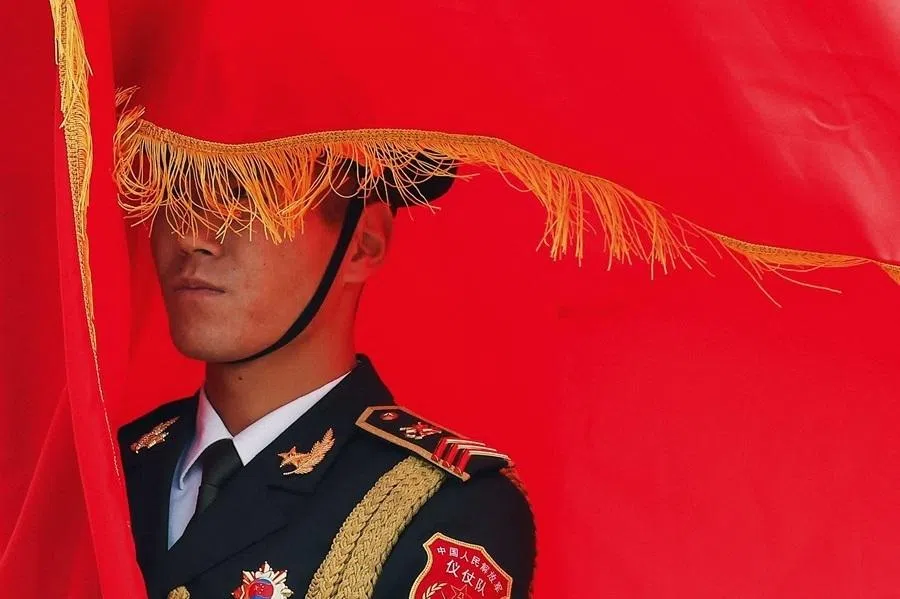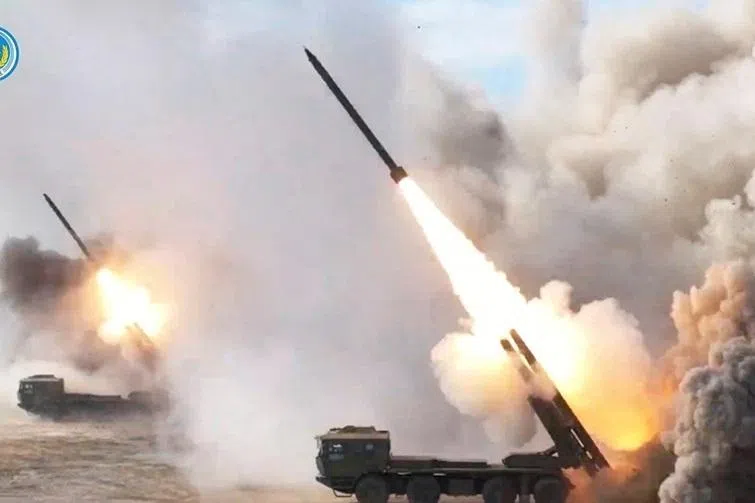Will the passing of Vietnamese leader Nguyen Phu Trong affect China-Vietnam relations?
Lianhe Zaobao correspondent Yu Zeyuan notes that the rocky history of China-Vietnam relations has shown that neither side is willing to let go of the current trajectory of good relations. Will the recent passing of Vietnam’s leader change this?
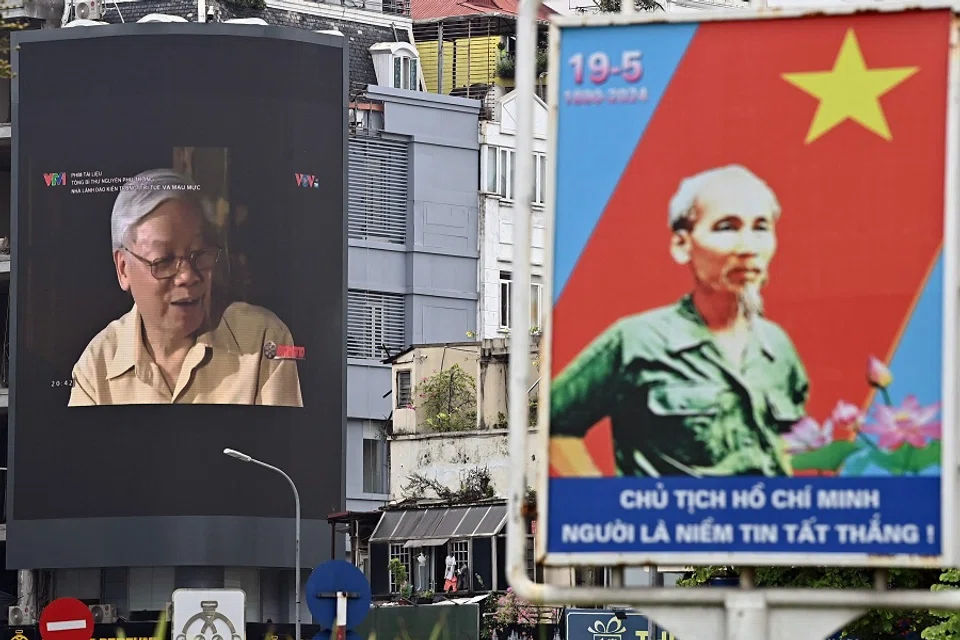
On 19 July, pro-China Communist Party of Vietnam (CPV) General Secretary Nguyen Phu Trong passed away due to illness. The Central Committee of the Chinese Communist Party (CCP) praised Trong as “a good comrade, a good brother, and a good friend” of the CCP and the Chinese people. CCP General Secretary Xi Jinping even mourned the passing of the Vietnamese leader at the embassy of Vietnam in China on 20 July.
Close relations but territorial disputes remain
The CCTV reported that Xi stood before Trong’s portrait, observed a moment of silence, and bowed three times, before writing down a message and signing the book of condolences.
Xi told Vietnam’s ambassador to China Pham Sao Mai that Trong was a staunch Marxist and a great leader of the CPV and the Vietnamese people. Xi recalled that the pair had “maintained close contact and developed a deep camaraderie” over the past decade. A milestone was reached last year when they “jointly announced the elevation of bilateral ties to a China-Vietnam community with a shared future that carries strategic significance”.
He also said that he firmly believes that China and Vietnam will continue to work together to make profound and solid progress in building the China-Vietnam community of a shared future.
China’s high-profile mourning of Trong is a rare occurrence. It demonstrates the importance that Chinese leaders attach to China-Vietnam relations while revealing the hope for Vietnam’s new leadership to maintain Trong’s friendly approach towards China...
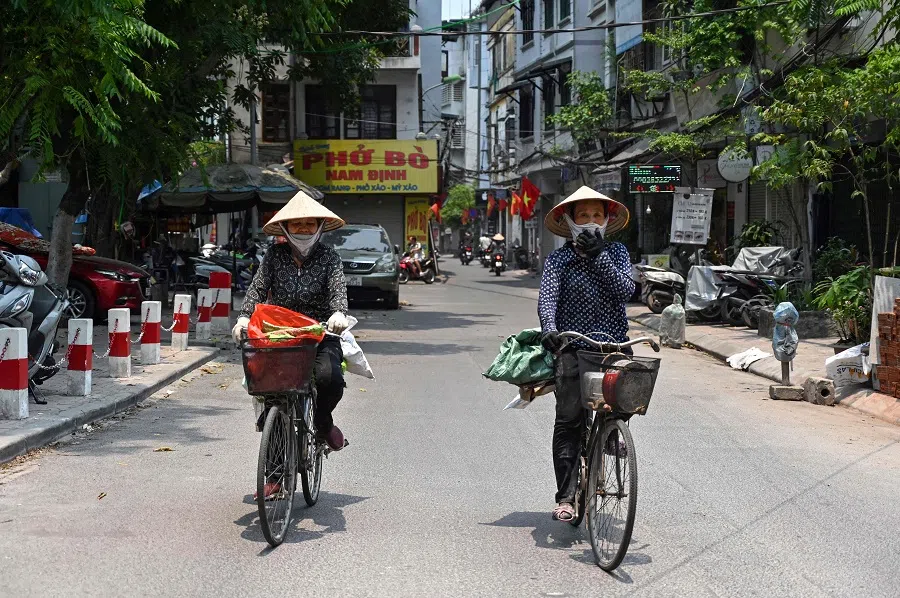
CCTV footage showed that apart from the wreaths sent by the seven members of the CCP’s Politburo Standing Committee, there were also those sent by the Central Committee of the CCP, the National People’s Congress, the State Council, the Chinese People’s Political Consultative Conference, the Central Military Commission, the Ministry of Foreign Affairs and the Ministry of National Defense, among others.
China’s high-profile mourning of Trong is a rare occurrence. It demonstrates the importance that Chinese leaders attach to China-Vietnam relations while revealing the hope for Vietnam’s new leadership to maintain Trong’s friendly approach towards China, in order to maintain the positive trajectory of China-Vietnam relations.
The concerns of the Chinese leaders regarding the direction of China-Vietnam relations are not unfounded. Just a day before Trong’s passing, Vietnam filed a claim with the United Nations (UN) for an extended continental shelf in the South China Sea. China thinks that this move “will only accentuate differences and exacerbate frictions, which will in no way help resolve the disputes”.
Chinese foreign ministry spokesperson Lin Jian asserted on 18 July that Vietnam has infringed on China’s territorial sovereignty and maritime rights and interests by unilaterally presenting to the UN’s Commission on the Limits of the Continental Shelf its submission of an extended continental shelf in the South China Sea that covers parts of China’s Nansha Qundao.
China does not want sovereignty disputes between both countries in the South China Sea to affect bilateral ties.
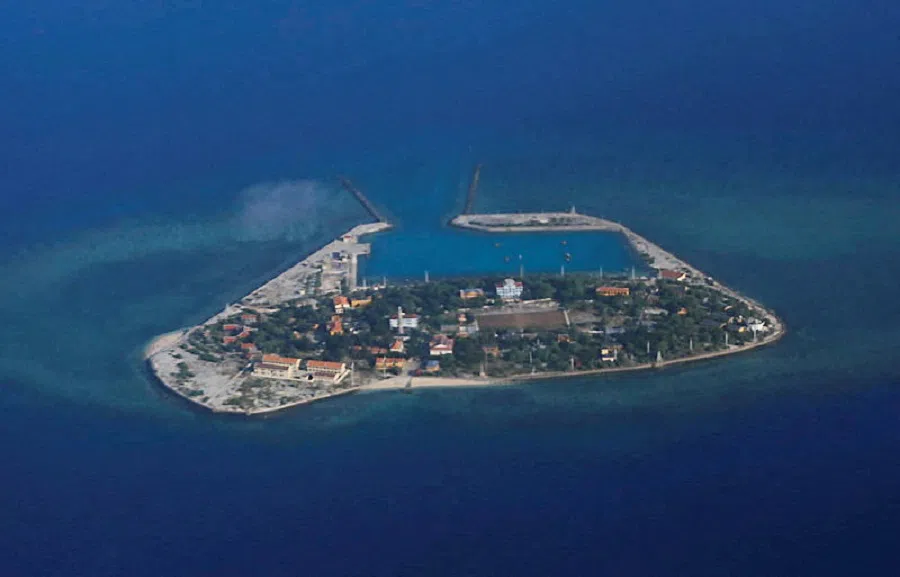
He also stated that it breaches the Agreement on Basic Principles Guiding the Settlement of Sea-related Issues between China and Vietnam, and the Declaration on the Conduct of Parties in the South China Sea jointly signed by China and ASEAN countries, including Vietnam.
He said, “We firmly oppose it and have made serious protests to Vietnam.”
However, just as China made “serious protests” to Vietnam, Xi personally went to the embassy of Vietnam in China to mourn Trong’s death and affirm his confidence in China-Vietnam relations. This indicates that China does not want sovereignty disputes between both countries in the South China Sea to affect bilateral ties.
Prioritising relations with China
Among China’s relations with neighbouring countries, China-Vietnam relations are unique and complex. Prior to the reunification of Vietnam in 1975, China was one of the most important supporters of the Viet Cong’s war against the French and Americans. Both sides also described their friendship as deeply profound, “because we are both comrades and brothers”.
But after Vietnam’s reunification, the disputes between China and Vietnam over land borders and the South China Sea emerged. Then Vietnam leader Le Duan also leaned towards the Soviet Union, believing that China was a great threat for Vietnam. Hence, China-Vietnam relations rapidly deteriorated.
In February 1979, Chinese troops attacked and invaded Vietnam, and retreated less than a month later. Military conflict between the two sides at the borders subsequently persisted for nearly ten years.
... while balancing relations with big countries such as China, US and Russia, Trong has insisted on developing relations with China as a priority for Vietnam’s foreign policy.
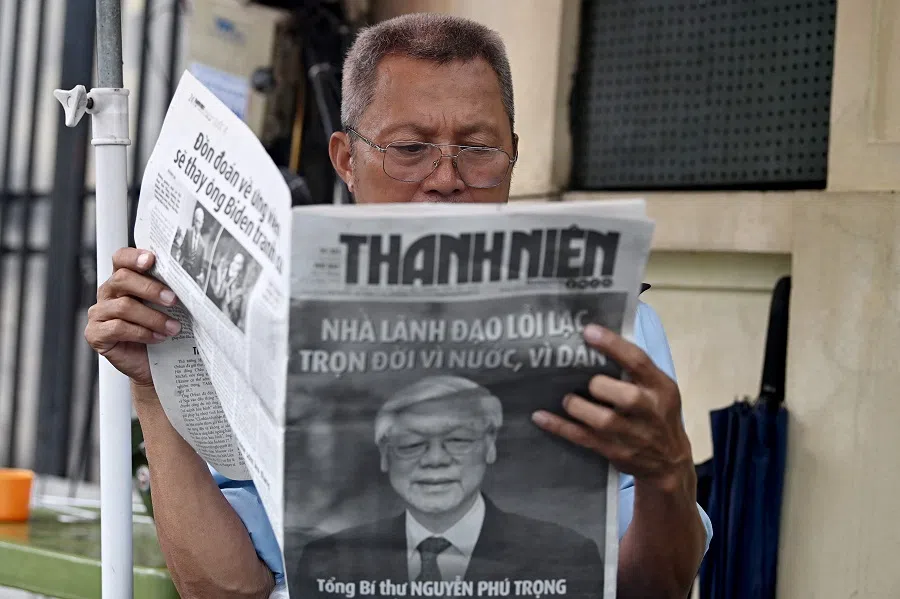
In the 1990s, China-Vietnam relations began to improve, and both sides gradually settled the border dispute. After Trong took over as general secretary of the CPV in 2011, China-Vietnam relations began to stabilise despite the continuing sovereignty dispute in the South China Sea. Both sides proclaimed that this would not affect the development of bilateral relations.
Trade between the two countries also grew exponentially, with China being Vietnam’s largest trading partner for several consecutive years, and also Vietnam’s largest import market and second largest export market.
The progress in the China-Vietnam relationship is closely linked to Trong’s efforts. Trong was the top leader in Vietnam for 13 years; the longest serving leader of Vietnam after Ho Chi Minh and Le Duan. Due to Vietnam’s ideological closeness to the CCP, developing relations with China was Trong’s priority.
Balancing relations with big powers
In October 2022, just after the conclusion of the CCP’s 20th Party Congress, Trong visited China and jointly issued a statement with the Chinese on continuing to promote and deepen the China-Vietnam Comprehensive Strategic Cooperative Partnership, emphasising that the two sides are “good comrades and good partners with the same purpose, sharing a common destiny”.
In December last year, Xi visited Vietnam, and both sides once more declared that on the foundation of deepening the Comprehensive Strategic Cooperative Partnership, both countries would collectively build a strategically significant China-Vietnam shared future.
Nonetheless, Trong was not “uniformly China-leaning”. He stressed that Vietnam should embark on “bamboo” diplomacy, embodying the “firm roots” and “nimble branches” of bamboo. He also urged Vietnam to maintain a diplomatic principle of “a clear goal, and strategic as well as tactical flexibility”, striking a balance between big countries such as China, the US and Russia.
... for Vietnam, China is a strong neighbour that it cannot shake off, and both Vietnam and China would most likely be unwilling to bear the consequences of a change in bilateral relations.

Trong had visited the US before and received US President Joe Biden in Vietnam in September 2023. Both sides declared then that the US-Vietnam relationship would be elevated to a comprehensive strategic partnership. In June this year, Russian President Vladimir Putin — who has been isolated internationally — also made a visit to Vietnam.
But while balancing relations with big countries such as China, US and Russia, Trong has insisted on developing relations with China as a priority for Vietnam’s foreign policy. This is the key reason why Chinese leaders have described him as “a good comrade, a good brother and a good friend”.
With Trong’s death, To Lam, who was elected president in May, will temporarily take over as CPV general secretary. When Lam met with Chinese ambassador to Vietnam Xiong Bo in June this year, he reaffirmed that developing relations with China was a strategic choice and a top priority for Vietnam’s foreign policy.
It remains to be seen if Lam would be able to solidify his own leadership position. As for whether Vietnam’s new leadership would inherit Trong’s strong emphasis on relations with China entirely, it is still up in the air. However, for Vietnam, China is a strong neighbour that it cannot shake off, and both Vietnam and China would most likely be unwilling to bear the consequences of a change in bilateral relations.
This article was first published in Lianhe Zaobao as “阮富仲去世后中越关系会不会生变?”.



![[Big read] When the Arctic opens, what happens to Singapore?](https://cassette.sphdigital.com.sg/image/thinkchina/da65edebca34645c711c55e83e9877109b3c53847ebb1305573974651df1d13a)
